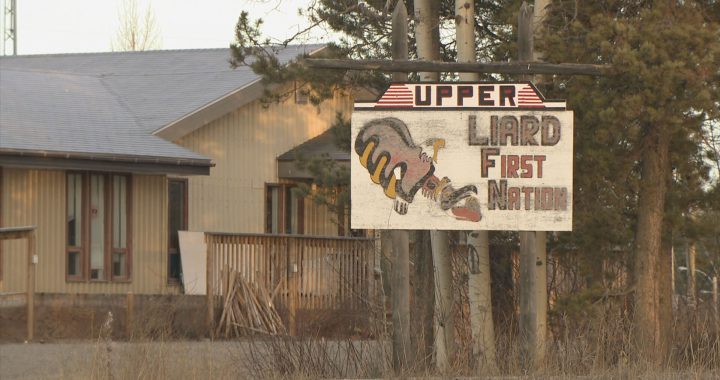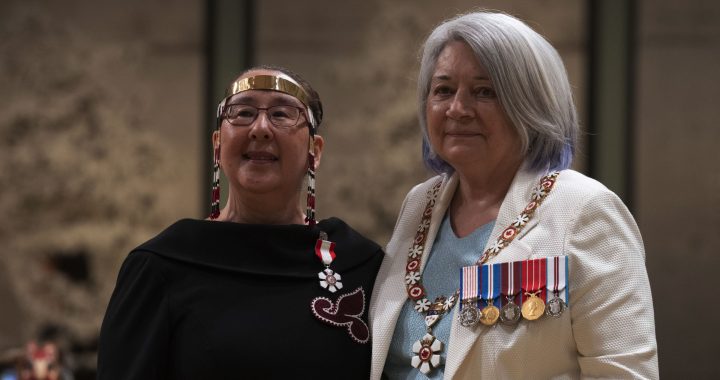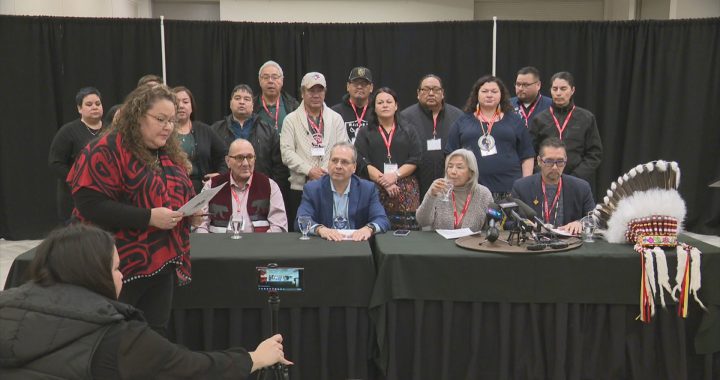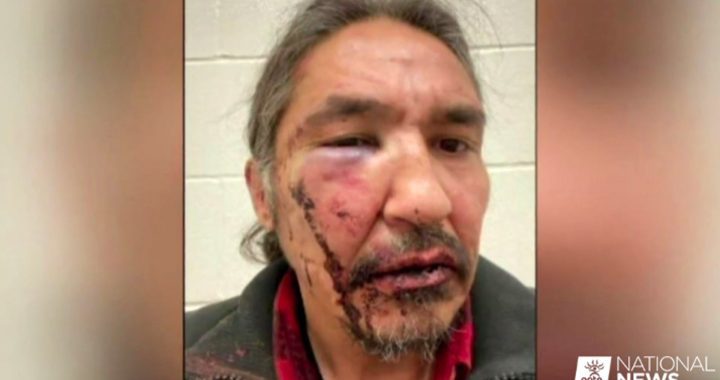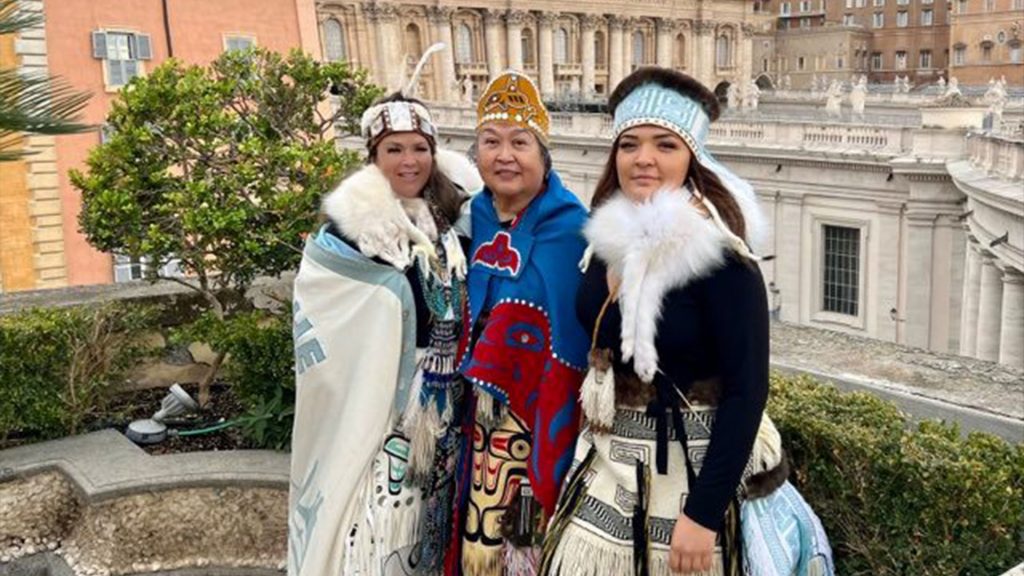
Three generations from Yukon in Rome. From left, Marilyn Yadułtin Jensen, Frances Neumann and Megan Guna Jensen. Photo Courtesy: Marilyn Jensen
A mother and daughter from Yukon say they’re “still processing” after performing for and supporting the Assembly of First Nations (AFN) delegation that recently met with Pope Francis in Vatican City, Italy.
“I’m still processing it and as it was unfolding on the ground, it was just major, majorly overwhelming,” says Marilyn Yadułtin Jensen, a Carcross/Tagish First Nation citizen of the Dakhl’aweidí Clan under the Tagish Keét Hít (Killerwhale House).
Jensen is the founder and leader of Tlingit dance group Dakhká Khwáan Dancers, as well as the vice-chair of Indigenous Tourism Association of Canada (ITAC).
During the historic visit she led and coordinated a cultural group of First Nations, Métis and Inuit dancers from across Canada. The group’s aim was to showcase authentic Indigenous representation as well as to provide support to the delegation through song, music, dance and storytelling.
Jensen says witnessing the delegation after receiving an apology from the Pontiff on April 1 was an unforgettable experience.
“We could see how much it meant to them to hear singing and drumming and just to see us, just to see their people from across the nation dress in regalia, holding them up and trying to lift them up with the strength of our culture, our songs, our drums and mainly young people,” Jensen says.
“I think that was just such a strong statement of resilience.”
Jensen’s daughter, Guna (Megan Jensen), who is also a member of Dakhká Khwáan, accompanied her mother providing assistance with the dance delegation.
She says the experience “was one of the most powerful moments of my life.”
“I was able to witness a moment where the songs and the drumming was happening I could see that these delegates had to go through so much… But when that drumming happens and the songs happen, it’s like giving permission and creating that safe space in a place that feels so unsafe. When you hear the drumming, it’s home.”
Resilience through dance
Accompanying the AFN delegation were 12 performers from across Canada, including traditional Mi’kmaw singer Michael R. Denny and Inuk throat singer Rita Claire Mike-Murphy (Riit).
“It was really wonderful. It’s always such an expression of joy and strength to be able to dance and to know that act is lifting people’s spirits and hearts up,” says Jensen, who also performed.
She says one performance involved dancers sharing a dance from each of their respective nations or region. For Jensen and Guna’s region the pair preformed a warrior song where Guna danced and Jensen sang and drummed.
“We just wanted to put it out there, to hold up the delegates. The others did prayer songs, they did dances. We happened to have among us three champion hoop dancers, if you can imagine,” she says.
Jensen says providing dancers and performers to Rome was influenced and supported by Dene National Chief Gerald Antoine, AFN portfolio holder for the delegation.
“He really wanted there to be that cultural component,” Jensen says.
Guna says it’s important to note the dancers “didn’t dance for the Pope.” She says the dancing and performances were mainly to provide cultural support to the delegation as they pursued acknowledgment from the Pontiff regarding the Catholic Church’s horrific legacy of residential schools and abuse.
“We danced for our people and were there to hold up our people… I can’t imagine what would happen if we weren’t here. It would have just been this extremely heavy thing,” she says.
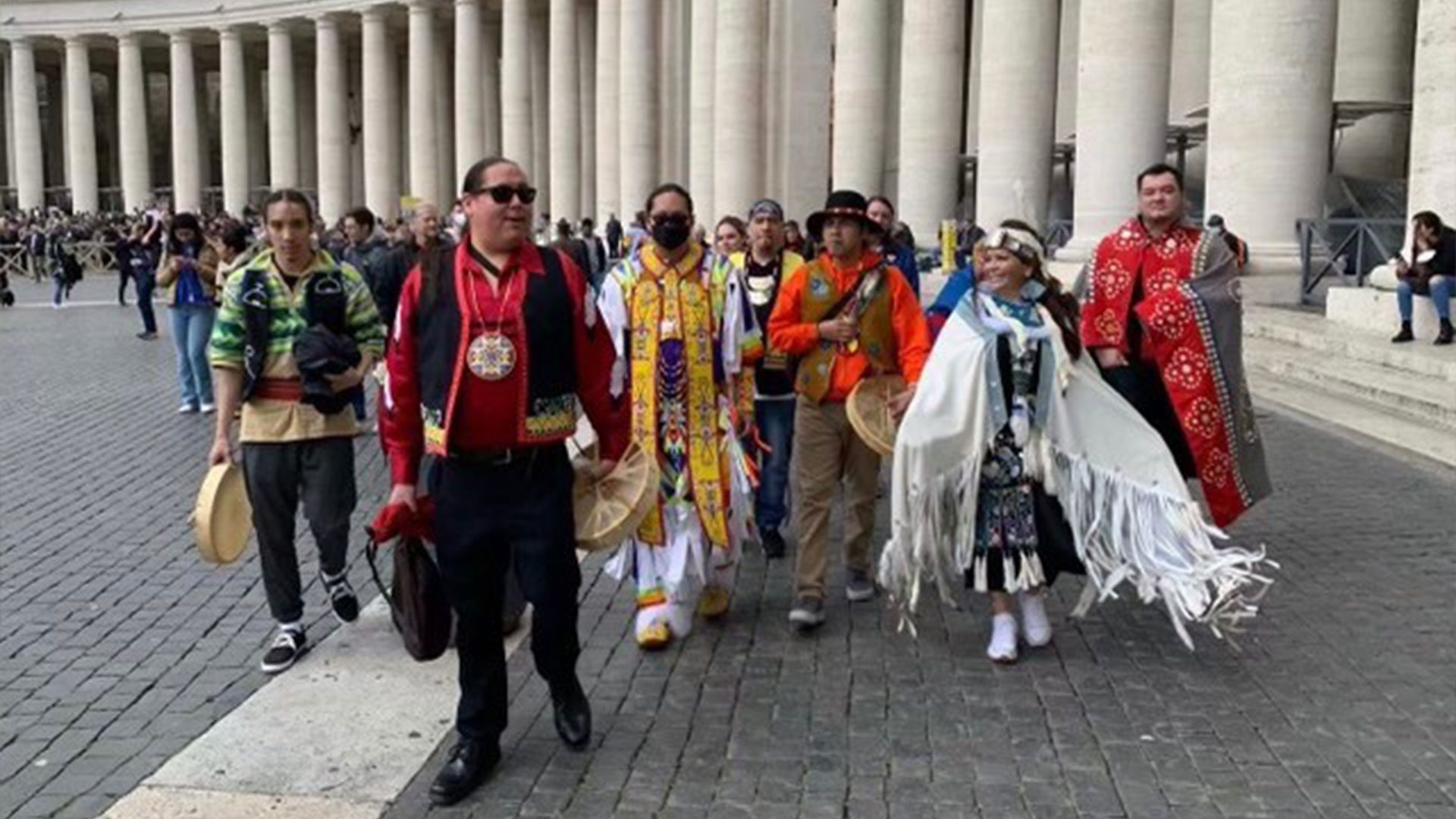
Residential school connection
While dancing was the main goal of their trip, mother and daughter say they’ve been impacted by the legacy of residential school.
Guna’s great-grandparents were sent to the former Choutla Indian Residential School in Carcross, Yukon. Guna’s grandmother, Doris McLean, a former C/TFN chief, also attended the Whitehorse Baptist Mission School.
She says she grew up seeing the impacts of residential school with her grandmother and that the former site of the Choutla school continues to cast a “really heavy and really dark” legacy in the community.
Jensen says she’s felt the legacy of residential school, too, and says being in Rome with the AFN delegation was emotional.
“I couldn’t stop thinking about my grandparents and my mom and all of the survivors that really put the that forceful hand and have sacrificed essentially their lives for us and the betterment of us,” she says.
Read More:
‘We are stronger now’: Métis and Inuit delegates have their moment with the pope
‘I am sorry’: Pope Francis apologizes for role Catholics played in residential school abuses
Generations in Rome
Despite the emotion of the trip, both women say it was a special experience, especially as they went as mother and daughter.
“Having her there was such a bright shining light, as well as the other young people on our group of cultural ambassadors, because they are so strong and they really uphold that notion of ‘you didn’t win and we’re not dead,’ – we’re literally still here,” Jensen says.
Guna says she was also proud to be with her mother who is a community advocate.
“Watching my mom do the work in Rome, I see in the back of my mind all those years of work,” Guna says.
“My grandmother stood up and went above and beyond her whole life, and I see that devotion (in my mother) to people and community, to nation…I see that level of devotion and commitment that my mother has and that’s why she started a dance group. Her life is committed to it.”
Frances Neumann, Jensen’s aunt, was also in attendance.
Apology not enough
Jensen and Guna say it’s a step forward that the Pontiff has acknowledged the wrongdoings of the church and has apologized, but more action is needed.
Jensen says it’s up to her community what this action will look like, while Guna says that action can begin with people with settler origins, like pointing out racism and building relationships with Indigenous people and communities.
“There’s a role that you play…step into our world,” she says.
Ultimately, Guna says the once-of-a-lifetime experience will be one she never forgets.
“I’m just happy and grateful to the Creator and the universe for bringing all that together because I couldn’t imagine not being there (for the delegates) in that moment for them.”




